Wolastoqey chiefs add forestry companies to title claim case
Legal win would let harvesting continue with Indigenous approval
Wolastoqey chiefs in New Brunswick are shifting their Aboriginal title claim case to pursue the province's largest forestry companies in a bid to reclaim title to much of their traditional territory.
The six chiefs have amended the legal claim they filed last year to add J.D. Irving Ltd. and its subsidiaries, Twin Rivers Paper, the A.V. Group, Acadian Timber and H.J. Crabbe and Sons.
They say the companies operate on about 20 per cent of the more than five million hectares the chiefs identify as Wolastoqey traditional lands in New Brunswick.
 The
Wolastoqey say the J.D. Irving Ltd. companies and subsidiaries operate
on about 20 per cent of the more than five million hectares the chiefs
identify as Wolastoqey traditional lands in New Brunswick. (submitted Wolastoqey Nation of New Brunswick)
The
Wolastoqey say the J.D. Irving Ltd. companies and subsidiaries operate
on about 20 per cent of the more than five million hectares the chiefs
identify as Wolastoqey traditional lands in New Brunswick. (submitted Wolastoqey Nation of New Brunswick)
"They are the largest landowners in New Brunswick, and they have had a history of getting land from the province without paying a fair price for it," Chief Patricia Bernard of the Wolastoqey Nation of Matawaskiye (Madawaska) said at a news conference.
"That is our land that the province gave away for a song. We want back what is ours, that was never theirs to give."
The change to the lawsuit puts the legal action on two tracks, seeking compensation from governments for the loss of some parts of the territory, but claiming ownership of the parts used by industry.
"Aboriginal title on the traditional lands ... does not seek to displace regular New Brunswickers from their homes and farms," the chiefs say in a news release.
But winning clear recognition of title for land used by industry would make the Wolastoqey landlords and give them final say in how the companies harvest wood there. They would also be able to receive some or all of the royalties that now go to government.
A ruling in favour of the Wolastoqey Nation would allow forestry to continue, said the release, "as long as corporations had an agreement with the Nation over activities on their land."
The chiefs say the case could take a decade or more to go through the courts, so it's too early to say what kind of forest management system they might put in place if they win.
But they say getting a share of the revenue from harvesting is overdue.
"These are our resources. They were never ceded through treaty and we're not the ones generating wealth off them," said Chief Ross Perley of Wolastoqey Nation at Neqotkuk, also known as Tobique First Nation.
"Companies in the province have been accumulating wealth from our resources for the last hundred years. We feel that it's our turn to get our share of wealth and make our communities sustainable."
 Chief Patricia Bernard of the Matawaskiye (Madawaska) First Nation (Jacques Poitras/CBC)
Chief Patricia Bernard of the Matawaskiye (Madawaska) First Nation (Jacques Poitras/CBC)
N.B. Power is also named in the claim — the only non-forestry industry player identified. In the utility's case, the Wolastoqey First Nations could claim revenue from its generation and sales of electricity.
The new claim replaces the one filed last year. The new version keeps the federal and New Brunswick governments as defendants.
Last month, the Higgs government ordered government employees to stop making public land acknowledgements that the province sits on unsurrendered and unceded Indigenous territory.
At the time Attorney-General Ted Flemming said the acknowledgements might compromise the province's position in the land-claim case and implied that the Wolastoqiyik wanted to take back all of their traditional territory.
Bernard called that "clearly an attempt to deceive and create fear amongst New Brunswickers."
She said that's why the claim has been amended to make clear "the rights of everyday New Brunswickers will not be impacted" by the claim.
The claim is based on Peace and Friendship treaties signed by the Wolastoqiyik and the British Crown between 1725 and 1778.
The chiefs say those agreements did not provide for the surrender of any land.
CBC's Journalistic Standards and Practices
News Release
Office of the Premier
Office of the Lieutenant-Governor
New members invested into the Order of New Brunswick
30 October 2019FREDERICTON (GNB) – Ten new members were invested into the Order of New Brunswick by the chancellor of the order, Lt.-Gov. Brenda L. Murphy, at a ceremony held today at Government House in Fredericton.
“This year’s recipients have given back to our province in profound and significant ways,” said Premier Blaine Higgs. “They are a testament to the impact which thoughtful, committed and passionate people can have on the world around them. It is an honour to recognize and celebrate their achievements.”
This year’s recipients are:
- Chief Patricia Bernard, from Madawaska Maliseet First Nation, for her outstanding achievements in uniting the Wolastoqey Nation in New Brunswick and for her work in the economic development of the Madawaska region.
- Héliodore Côté, from Grand Falls, for his longstanding commitment and leadership in his community through volunteerism.
- Michel Doucet, from Dieppe, for his extraordinary commitment to the legal profession and for his outstanding contribution to language rights in New Brunswick.
- Léo Johnson, from Moncton, for his passion for social justice and for his commitment to protecting vulnerable people in his community.
- Lois Scott, from Shediac Cape, for pioneering the establishment of a provincewide telehealth service and contributing to the well-being of all New Brunswickers.
- Robyn Tingley, from Rothesay, for her extraordinary achievements in leadership and her commitment to women’s equality in New Brunswick.
- Abraham Beverley Walker (posthumous), from Saint John, for his inspiring achievements as one of Canada’s first black lawyers admitted to the bar and for his commitment to civil rights in New Brunswick and across North America.
- James Wilson, from Quispamsis, for his outstanding commitment to conservation in New Brunswick and his work in establishing the Point Lepreau Bird Observatory.
- Claire Wilt, from Bathurst, for her longstanding service to her community and extraordinary volunteerism.
- John Wood, from Oromocto, for his incredible fundraising efforts through his own John Wood Foundation to raise money and awareness for Duchenne’s muscular dystrophy in New Brunswick.
The 2019 inductees were presented with an Order of New Brunswick medal. Members of the order are entitled to use the initial O.N.B. after their names.
The Order of New Brunswick was established in 2000 to recognize individuals who have demonstrated a high level of excellence and achievement in their particular field. Since 2002, more than 170 accomplished individuals have been invested with the order for their dedication and service to the province, its people and communities.
Media Contact(s)
Jean-Francois Pelletier, corporate communications, Executive Council Office, 506-444-4718.
https://www.cbc.ca/news/canada/new-brunswick/title-claim-higgs-wolastoqey-1.6270141
Higgs says private citizens' property rights could be jeopardized by Wolastoqey lawsuit
Chief Patricia Bernard calls premier's stance fear-mongering, says 'we're not going after New Brunswickers'
Premier Blaine Higgs says a revised Aboriginal title claim filed in the Court of Queen's Bench could impact some of the basic principles society runs on.
At a news conference held Wednesday afternoon, Higgs and Natural Resources Minister Mike Holland voiced concerns about the revised claim.
Higgs said the claim creates "tremendous uncertainty" for individuals buying land or building a business in terms of being sure of "the assets they actually own."
"Never before has a claim of this nature attempted to take control of land that is privately owned," he said.
The original lawsuit, which asks the courts for clear title to 60 per cent of New Brunswick's landmass, was filed a year ago.
But on Tuesday, Wolastoqey chiefs announced that J.D. Irving Ltd. and four other forestry companies, as well as N.B. Power, have been added as defendants.
The chiefs say those companies benefit from "sweetheart deals" that were made with the province on territory that was never surrendered by the Wolastoqey Nation.
Natural Resources Minister Mike Holland said the lawsuit could hurt New Brunswick's $2-billion forestry industry and one of the province's top exports.
"The strength of this sector keeps food on the table for one in 14 New Brunswickers whose jobs are linked to the health and growth in this sector," said Holland.
The chiefs have said they don't aim to seek compensation directly from the forestry companies.
But if their claim succeeds and they become the landlords, they would negotiate new deals and have a say in how the forests are managed.
Holland said the government is still trying to understand how that could impact the entire economy.
"It's your neighbour who owns a harvester," he said. "It's the private woodlot owner that's working to move their product through the supply chain. It's also the small mill that makes value-added products that employ local men and women all throughout the province."
 Chief Patricia Bernard of Madawaska First Nation had predicted Higgs
would try to frighten New Brunswickers into opposing the Aboriginal
title claim. (Logan Perley/CBC)
Chief Patricia Bernard of Madawaska First Nation had predicted Higgs
would try to frighten New Brunswickers into opposing the Aboriginal
title claim. (Logan Perley/CBC)
'This is fear-mongering,' chief says
Patricia Bernard, chief of the Madawaska First Nation, had predicted Tuesday that Higgs would try to scare New Brunswickers into going against the claim.
After the news conference, she told reporters the government was fear-mongering, and she wasn't surprised.
"This is not a land claim," Bernard said. "This is an Aboriginal title declaration."
"The only thing that we're seeking back is the land from these corporations, not a land claim for our traditional territory."
Bernard also emphasized that point on Tuesday, when she assured residents that the chiefs are not coming for the homes and farms of ordinary New Brunswickers.
"Let me speak for a minute to New Brunswickers who have homes on our traditional lands and who rightfully have many questions about this development," she said.
"While we are seeking title to our territory, the Wolastoqey Nation does not want to displace you from your homes."
She noted that "the only private landowners we are trying to get land back from are these six: J.D. Irving Ltd., AV Group, Acadian Timber, Twin Rivers Paper. H.J Crabbe and Sons, and N.B. Power.
"If you're not one of these companies, you have nothing to worry about."
Bernard admitted Wednesday that title claims can be confusing but said it's a legal principle that the province needs to better understand,
"Our intent is not to bankrupt this province," she said. "That would be ludicrous."
Asked if the claim was worth a trillion dollars, Bernard declined to put a price tag on it.
She said some of the details will be worked out in the courts but that she expects the matter could take a decade or more to go to trial.
https://www.cbc.ca/news/canada/new-brunswick/premier-first-nations-lawsuit-fearmongering-1.6271292
Higgs accused of lying about Wolastoqey title claim
Premier's assertions contradicted by 657-page statement of title claim filed by chiefs
New Brunswick Premier Blaine Higgs is being accused of lying and stoking fear through misleading comments he made about the contents of a major Aboriginal title claim by Wolastoqey chiefs.
Opposition leaders reacted fiercely on Thursday morning to the premier's comments that the lawsuit might lead to Indigenous people winning control of 60 per cent of the province's land, including private homes and businesses.
Higgs made the assertion during a Wednesday news conference, but his comments are flatly contradicted by the 657-page statement of claim filed by the chiefs earlier this week.
The premier said the title claim "impacts every single land owner" in the province by claiming title to "private lands of any kind" with "no limits."
He said "at this point in time" the lawsuit names only a few landowners "but it does not exclude the many."
In fact, the statement of claim explicitly says that other than the province, the federal government and the six companies named in the filing, no one else's property will be affected.
 Chief
Patricia Bernard of the Wolastoqey Nation of Matawaskiye said private
landowners outside of the six companies named in the lawsuit have
nothing to worry about. (Jacques Poitras/CBC)
Chief
Patricia Bernard of the Wolastoqey Nation of Matawaskiye said private
landowners outside of the six companies named in the lawsuit have
nothing to worry about. (Jacques Poitras/CBC)
The chiefs "seek no relief" against homeowners and other property holders not named in the lawsuit, and their properties "are not placed in issue" in the case, the filing says on the second page.
The chiefs "do not seek a declaration of Aboriginal title" that would bind anyone not specifically named as defendants, it continues.
Chief Patricia Bernard of the Wolastoqey Nation of Matawaskiye (Madawaska) made the same point to reporters this week.
"If you're not one of these companies, you have nothing to worry about," she said.
Higgs claimed Wednesday that the documents didn't include that reassurance.
"You can have assertions outside of the court challenge, but the reality is what it says on the actual claim itself," he said.
On Thursday, Attorney-General Ted Flemming joined Higgs in arguing the lawsuit could affect all private property.
 Green
Party Leader David Coon said Higgs was trying to stir up bad blood
between First Nations communities and everyday New Brunswickers. Liberal
Leader Roger Melanson said Higgs was spreading fear. (CBC)
Green
Party Leader David Coon said Higgs was trying to stir up bad blood
between First Nations communities and everyday New Brunswickers. Liberal
Leader Roger Melanson said Higgs was spreading fear. (CBC)
During question period, he urged the chiefs to add a disclaimer if that is not the case.
"I ask the Wolastoqey, respectfully: amend your claim. Exclude private citizens and their property," said Flemming, who claimed to have read the court filing.
The filing in fact already contains a list of thousands of parcels of land subject to the claim, running to 628 pages, with the owner names and parcel identifier, or PID, numbers used by Service New Brunswick's land registry.
The owners of those parcels are listed as J.D. Irving Ltd. and its subsidiaries, Twin Rivers Paper, the A.V. Group, Acadian Timber, H.J. Crabbe and Sons, N.B. Power, the provincial government and the federal government.
For all other land not on the list, "the return of these lands is not sought by the Plaintiffs in this litigation," the claim says.
Flemming did not speak to reporters after his comments in question period.
 Attorney-General
Ted Flemming defended the premier in the legislature Thursday, saying
he has to represent the interests of 750,000 New Brunswickers, not just
15,000. (Jacques Poitras/CBC file photo)
Attorney-General
Ted Flemming defended the premier in the legislature Thursday, saying
he has to represent the interests of 750,000 New Brunswickers, not just
15,000. (Jacques Poitras/CBC file photo)
Both the Liberal and Green leaders accused Higgs of misleading people about the contents of the claim.
"Trying to make people believe that First Nations are going after your home? That's not true. That is not true," said Liberal Leader Roger Melanson.
"We're better than that. As premier he's got the responsibility to be the adult in the room and try to find a solution, and not spread fear."
Green Party Leader David Coon said he was "cross" with Higgs "that he would try and stir up bad blood between New Brunswickers and First Nations people in this province."
The six Wolastoqey chiefs are claiming title to the 60 per cent of the province's land mass that is their traditional territory.
They say they want ownership of the land used by the five forestry companies, N.B. Power, and the federal and provincial governments, and if they win are willing to sign agreements to let industrial harvesting continue subject to their approval.
For the rest of the land, they say they are looking for financial compensation, not control.
In the legislature Thursday, Flemming taunted Melanson about not having a law degree, while Higgs accused the Liberal leader of speaking only for Indigenous people, not all New Brunswickers.
Melanson "basically believes that there's only one segment of the population that we have to be concerned about," the premier said.
Flemming also brushed off questions about the news conference held Wednesday by Higgs, Aboriginal Affairs Minister Arlene Dunn and Natural Resources Minister Mike Holland.
Normally premiers and ministers avoid discussing lawsuits by saying they can't comment on something before the courts.
Flemming, who as attorney-general acts as the lawyer for the provincial government, said he "gave no advice" about convening the news conference because "the holding of a press conference is not a legal issue."
But he defended Higgs by arguing the premier "has an obligation to represent the interests of 750,000 New Brunswickers, not just 15,000. He has to concern himself with the one in 12 New Brunswickers that earn their living from the forestry sector."
https://www.cbc.ca/news/canada/new-brunswick/joanna-bernard-afn-regional-chief-1.6270908
Joanna Bernard becomes Assembly of First Nations regional chief
Bernard succeeds Roger Augustine who had been regional chief for N.B. and P.E.I. since 2008
Joanna Bernard of Madawaska First Nation has been elected Assembly of First Nations regional chief for New Brunswick after a month-long campaign.
Assembly regional chiefs are elected by chiefs in their own provinces. Bernard won 80 per cent of the votes.
"I was excited," she said in an interview as she spoke about how she was congratulated by every chief in New Brunswick following the announcement.
The task ahead, Bernard said, is to take the concerns of Indigenous people in the province to Ottawa after consulting with the chiefs.
"What I'm going to focus on is getting all the New Brunswick chiefs and communities working together on common goals," said Bernard.
"I'm pretty sure there's a common denominator there that we can work together on and unite, and when we do that, of course, our voices are louder."
Some of the files she plans to tackle relate to truth and reconciliation, fishing and land title.
During a news conference on Wednesday, Premier Blaine Higgs claimed a revised Aboriginal title claim filed in the Court of Queen's Bench could impact individuals buying land or building a business in the province.
This followed an announcement by Wolastoqey chiefs that J.D. Irving Ltd. and four other forestry companies, as well as N.B. Power, have been added as defendants to a lawsuit filed a year ago. The lawsuit asks the courts for clear title to 60 per cent of New Brunswick's landmass.
Patricia Bernard, chief of the Madawaska First Nation, refuted Higgs's claim and she told news media, land was being sought back from corporations and not non-Indigenous residents in the provinces.
Bernard, who is the chief's sister, said that consultation with other chiefs will take place within the next two months. She added tht she wants to hear about the chiefs' priorities before fully detailing what she plans to address when advocating in Ottawa.
Work in the community
Bernard is the former chief of Madawaska First Nation and is economic development officer for the community.
In 2013, she was the recipient of the Order of New Brunswick and was honoured for her dedication to economic development in her community with the development and opening of the Grey Rock Power Centre.
She succeeds Roger Augustine who had been the Assembly of First Nations regional chief for both New Brunswick and Prince Edward Island since 2008.
http://charlesotherpersonalitie.blogspot.com/2021/12/natural-resources-minister-mike-holland_46.html
Friday, 3 December 2021
Natural Resources Minister Mike Holland debate Native Land Claim issue with Blogger!!!
Attorney-General says he can't talk about Wolastoqey case
Liberals say judge’s caution means Ted Flemming must resign
One day after Ted Flemming urged the chiefs to clarify they're not claiming private homes of individual New Brunswickers — a clarification already in the legal documents — the minister refused to answer reporters' questions about the apparent contradiction.
He said the judge assigned to the case had urged both sides to not comment on the lawsuit publicly.
"They were not to 'argue' the case in public," Flemming said. "The case was to be argued in court. That's what courts do and that's the job of the courts. ...
"That's where I find myself. I have no flexibility on the matter. The direction of the judge is the direction of the judge."
When pressed by CBC News during a media scrum at the legislature to reconcile his Thursday comments with the court filing, Flemming walked out of the room.
 Flemming
left a media scrum abruptly after being pressed by reporters about his
comments about the Wolastoqey title case. Flemming said both sides have
been told by the judge not to talk about the case anymore. (Alix Villeneuve/Radio-Canada)
Flemming
left a media scrum abruptly after being pressed by reporters about his
comments about the Wolastoqey title case. Flemming said both sides have
been told by the judge not to talk about the case anymore. (Alix Villeneuve/Radio-Canada)
Opposition Liberal Leader Roger Melanson said the judge's admonition shows that Flemming should quit as the province's top lawyer.
"It is pretty clear that we now have a judge who is basically telling the attorney-general to shut his mouth on this matter," Melanson said.
"We've lost total confidence in the competency of the attorney-general in regards to giving legal advice on very important matters. I think the attorney-general needs to resign."
Renée Pelletier, a lawyer for the Wolastoqey chiefs, confirmed that Flemming was telling the truth and that the judge asked all parties to avoid public comments.
The six Wolastoqey chiefs filed the new version of their title claim this week, naming five large forestry companies and NB Power along with the federal and provincial governments.
They are claiming title to traditional territory that covers about 60 per cent of the province but say they are not interested in taking back any private land other than that belonging to the six industrial players.
 Liberal
Leader Roger Melanson says the fact Flemming is being told to 'shut his
mouth' by a judge brings the attorney-general's competence into
question. (Jacques Poitras/CBC)
Liberal
Leader Roger Melanson says the fact Flemming is being told to 'shut his
mouth' by a judge brings the attorney-general's competence into
question. (Jacques Poitras/CBC)
On those lands, they say they'd let logging, milling and electricity generation continue in return for a share of revenues.
On Thursday in question period, Flemming echoed claims by Premier Blaine Higgs that the Wolastoqey title claim could affect all properties within the nation's traditional territory, including private homes.
"I ask the Wolastoqey, respectfully: amend your claim. Exclude private citizens and their property," he said.
In fact, the filing already says that "the return of these lands is not sought by the Plaintiffs in this litigation." It says any finding in their favour on title would not bind any property owners other than the six companies and the governments.
Flemming said later on Thursday, Justice Kathryn Gregory of the Court of Queen's Bench held an initial case management conference with lawyers for both sides to discuss logistics and deadlines for the case.
During that meeting she made the request that parties to the case not debate it publicly.
"When a case management judge gives direction to counsel with respect to their conduct, we have no alternative," Flemming said.
"That is not to say that we are backtracking on anything that's been said to date. That's not to say we're changing anything so far. That's not to say our position has changed or anything like that."
But pushed to comment on the wording of the Wolastoqey filing that seem to contradict his earlier statements, Flemming refused and urged journalists to contact real-estate law experts.
"I am not going to stand here and give Property Law 101," he said, shortly before walking out.
Melanson pointed out that when he questioned Flemming's role in advising the province about a Wednesday news conference to discuss the case, the attorney-general made fun of him.
"Where did you get your law degree?" Flemming asked Melanson Thursday in question period. "I am quite amazed at how you have become such a legal expert."
Melanson, who is not a lawyer, told reporters Friday, "I had better judgment obviously than he had, and he's a lawyer, the top legal advisor of government."
Wolastoqey Nation lawsuit to claim title to half of New Brunswick
Winning the case would force federal and provincial governments to consult First Nations, chiefs say
Six Wolastoqey communities have filed notice of a court action asserting title to their traditional lands along the St. John River, known to them as the Wolastoq.
The title claim covers about half the province.
Community leaders announced the title claim, filed against both the federal and provincial governments, at a news conference on the old burial ground at St. Anne's Point in Fredericton.
They said the Wolasotqey Nation never gave up title to its land in the river watershed when it signed Peace and Friendship Treaties with the British Crown in the 18th century.
From 1725 to 1779, the Crown entered into treaties with five Wabanaki Confederacy nations, including the Wolastoqiyik, at the time known as the Indians of the St. John River.
"We entered into treaties to have peace and friendship with the Crown, but we never agreed to give up our lands," said Chief Allan Polchies Jr. of Sitansisk First Nation in Fredericton.
"We have always honoured our side of the treaties, but the Crown has not."
Broken
agreements over the years have left the Wolastoqey communities among
the poorest in the province, while others draw wealth from unceded
Wolastoqey land, Polchies said.
"The treaties made clear that
the land would not be taken away from us without lawful process," Chief
Patricia Bernard of Madawaska First Nation said. "The treaties were not
respected."
"The newcomers pushed us from our lands, the lands
that had given us life for thousands of years and forced us into six
small reserves along the Wolastoq."
 'We
entered into treaties to have peace and friendship with the Crown, but
we never agreed to give up our lands,' Chief Allan Polchies of Sitansisk
First Nation said. (Logan Perley/CBC)
'We
entered into treaties to have peace and friendship with the Crown, but
we never agreed to give up our lands,' Chief Allan Polchies of Sitansisk
First Nation said. (Logan Perley/CBC)
Should the six Wolastoqey communities win a declaration of title, Bernard said, they would need to be consulted on matters such as resource extraction projects.
"When things are going to happen with respect to the province, they will have to come consult."
The Wolastoq begins in Maine and runs down through Quebec and New Brunswick into the Bay of Fundy. The Wolastoqey chiefs title claim is only asserting lands within New Brunswick as part of the claim, but they have been in contact with Wolastoqey leaders in Maine and Quebec for potential future claims.
The lands and waters being claimed are those along the Wolastoq as well as its tributaries.
 The
Wolastoqey Nation in New Brunswick announced that they have filed a
notice of intent to pursue an aboriginal title claim for the Wolastoq,
or St. John River, and its tributaries and lands on Monday morning. (Wolastoqey Nation in New Brunswick)
The
Wolastoqey Nation in New Brunswick announced that they have filed a
notice of intent to pursue an aboriginal title claim for the Wolastoq,
or St. John River, and its tributaries and lands on Monday morning. (Wolastoqey Nation in New Brunswick)
"We now know it was our territory because people went to every corner of it to live our lives, and harvest our foods and our medicines, and do our ceremonies and bury the ones that we've lost," said Chief Ross Perley of Neqotkuk, or Tobique.
"We know the Crown knew it was our land because when they came here to make treaties with us and our people they called us the St. John River Indians."
The lawsuit will ask the court's recognition of the Wolastoqey Nation's title to the land, known as Wolastokuk, but the chiefs said they aren't looking to displace people or get the land back from homeowners or farmers. Nor are they seeking compensation.
"We are not interested in kicking any regular folks out of their houses or off their farms," said Chief Shelley Sabattis of the Welamukotuk First Nation in Oromocto.
 'There’s
always going to be challenges but with a win in this title, we have a
say,' Chief Patricia Bernard of Madawaska First Nation said. (Logan Perley/CBC)
'There’s
always going to be challenges but with a win in this title, we have a
say,' Chief Patricia Bernard of Madawaska First Nation said. (Logan Perley/CBC)
"We have no problem with sharing," Perley said. "Sharing the land was foreseen in the treaties, it was the spirit of the treaties, but the treaties said if the settlers wanted the land, there would be a legal process for them to get it."
Bernard said now was the time to file the title claim because the nation has only recently become unified to the level it is now.
"Our community members have been saying this for years, our elders have been telling us about the treaties for years," Bernard said. "We have only recently become united as a Wolastoqey Nation, and that has caused us to organize and move forward."
Bernard said that the chiefs would rather not have to file a title claim but have few options, since negotiations with the provincial and federal governments have had "zero success."
Bernard said the lawsuit was years in the making and the issue could take years to settle.
"This very may likely take us to the Supreme Court if we don't see any willingness from the government to actually sit down and do some acknowledgement."
Bernard said the Wolastoqiyik, or People of the Beautiful River, get their name from the river Wolastoq,which speaks to how connected the nation is to the land.
 'Everything was part of the land and everything was part of
our territory,” said Chief Ross Perley of Neqotkuk. (Logan Perley/CBC)
'Everything was part of the land and everything was part of
our territory,” said Chief Ross Perley of Neqotkuk. (Logan Perley/CBC)
"There's always going to be challenges but with a win in this title, we have a say," Bernard said. "It makes the government have no choice but to talk to us."
Bernard said that the province's forestry management plan is an example of when First Nations people were not consulted with in New Brunswick and things would be different had they been properly consulted.
"Get in the same canoe as us and paddle down the river," Perley said. "For a better New Brunswick, this needs to be settled.
"Status quo is unacceptable, it's now time to confirm our title to these lands and these waters, for a better future for our people."
Communities of Kingsclear and Woodstock are also part of the title claim.
https://davidraymondamos3.blogspot.com/2021/10/methinks-former-attoney-general-mikey.html
Sunday, 24 October 2021
Methinks the former Attorney General Mikey Murphy and legions of past and present members of the RCMP laughed as hard as I did at the CBC revelations last week Nesy Pas?
https://www.cbc.ca/news/canada/new-brunswick/first-nations-new-brunswick-1.6211638
N.B. employees told to stop making Indigenous title acknowledgments, but won't face repercussions if they do
Staff told to instead use approved acknowledgement that excludes words 'unceded' and 'unsurrendered'
New Brunswick's Attorney General Ted Flemming says provincial employees will not face repercussions if they don't follow a new directive to stop making First Nations title acknowledgements.
Flemming issued a memo with the directive Thursday, a move he said was provoked by legal actions against the government involving Indigenous rights and land titles. Instead, the memo said employees must only use an "ancestral acknowledgement" approved by the provincial government's protocol office.
Speaking to media Friday afternoon, Flemming said provincial employees operating outside the scope of their employment are "free individuals in a free society and a free country."
"There's not going to be any acknowledgement police or anything else like that. I mean, good grief, there would be none of that."
In recent years, land acknowledgements have become a regular practice across Canada to open public events and ceremonies. In New Brunswick, they typically recognize the Wolastoqiyik, Mi'kmaq or Peskotomuhkati, depending on where the acknowledgement is being made, and often indicate an event is taking place on unceded territory.
Flemming said the province was "forced" to take this position after a title claim was filed by Wolastoqey nations in 2020.
The claim alleges the province is not upholding the Peace and Friendship Treaties signed in what is now Maine, New Hampshire, New Brunswick and Nova Scotia between 1725 and 1779. According to the federal department of Crown-Indigenous Relations and Northern Affairs Canada, "Aboriginal peoples did not surrender rights to land or resources" in those treaties.
Flemming said he sent the memo because whether the land is unceded or not is still "unresolved."
Not allowed to say 'unceded,' 'unsurrendered
"As you may be aware, the Government of New Brunswick (GNB) is currently involved in a number of legal actions which have been initiated by certain First Nations against the province, including a claim to ownership and title to over 60% of the Province," read Flemming's leaked memo, which was later verified by a provincial spokesperson.
"As a result of this litigation, legal counsel for GNB and the Office of the Attorney General has advised that GNB employees may not make or issue territorial or title acknowledgements.
"This includes the use of territorial acknowledgements at meetings and events, in documents, and in email signatures."
Flemming wrote it may still be "desirable" to make an "ancestral acknowledgement," which is provided at the bottom of the memo: "We (I) respectfully acknowledge the territory in which we gather as the ancestral homelands of the Wolastoqey, Mi'gmaw and Peskotomuhkati peoples. We strive for respectful relationships with all the peoples of this province as we search for collective healing and true reconciliation and honour this beautiful land together."
"Please note the absence of terms such as 'unceded' or 'unsurrendered,' " Flemming wrote.
After Premier Blaine Higgs was re-elected in 2020, a land acknowledgement read by Lieutenant-Governor Brenda Murphy at the throne speech did not include the terms "unceded" and "unsurrendered" and consisted of one line: "We gather today on the ancestral territory of our Indigenous people."
A
land acknowledgement read by Lieutenant-Governor Brenda Murphy at the
post-2020-election throne speech did not include the terms 'unceded' and
'unsurrendered.' (Submitted by Province of New Brunswick)
The terms were also missing from Higgs's speech on opening day of the Assembly of First Nations' 40th annual General Assembly in Fredericton in 2019.
Flemming said Friday afternoon he had "never" used the words "unceded" and "unsurrendered" in his remarks since the claim was filed in 2020. He also said he would not police what teachers say in class, even though they're provincial employees.
'It's so disrespectful'
Oromocto First Nation Chief Shelley Sabattis said land title acknowledgements are an important part of recognizing that New Brunswick sits on land that was never surrendered to Europeans when they arrived and settled. She thinks Flemming's memo is a slap in the face to First Nations people.
"We were here since time immemorial," Sabattis said. "We were always here, and to be pushed aside and to be taken over to follow a more dominant society or more dominant culture, it just seems … ridiculous. It's like, it's so disrespectful."
 Oromocto First Nation Chief Shelley Sabattis said she thinks
the order not to make land acknowledgements is disrespectful. (Logan
Perley/CBC)
Oromocto First Nation Chief Shelley Sabattis said she thinks
the order not to make land acknowledgements is disrespectful. (Logan
Perley/CBC)
Last year, Oromocto, along with five other Wolastoqey First Nations, filed a lawsuit with the province asserting title to their traditional lands along the St. John River, also known as the Wolastoq.
The claim covers about half the province and is ostensibly the same one Flemming was referring to.
The Wolastoqey Nation in New Brunswick, a group representing six Wolastoqey chiefs, released a statement decrying the memo.
"We were forced to file a title claim because our rights continue to be ignored by GNB. Now, in response to this, the Province seeks to further trample our rights and erase us from the history of this province," the chiefs said in the statement.
The chiefs said their unceded Aboriginal title in the province of New Brunswick is a "historical fact that the provincial government is simply going to have to come to terms with."
"The Wolastoqey Nation is not seeking the return of all of the land in its traditional territory through the title claim," they said. "We made it very clear when giving the Crown notice of our claim in October 2020 that we were not looking to displace homeowners in New Brunswick."
Sabattis said she's already heard from provincial workers considering what they should do in response.
"My suggestion is just to keep on doing it, keep on acknowledging the proper acknowledgement. It is unceded, for one, and it's unsurrendered. That's what's unique about New Brunswick, or the Maritimes, even."
Mi'kmaw chiefs question negotiations with province
The six leaders said Higgs's track record shows "his unilateral decision making without any Indigenous input."
"His disdain for our people bears out in the government's refusal to conduct a public inquiry into systemic racism, his shredding of our tax agreements, his aversion to implementing any of the 94 Calls to Action of the Truth and Reconciliation Commission."
The province did not make the National Day for Truth and Reconciliation a provincial holiday. Higgs also pulled out of a 10-year tax-sharing agreement, calling it "unfair."
After two First Nations people were killed at the hands of police within two weeks last year, the province did not answer calls for an inquiry into the justice system's treatment of Indigeous people, instead appointing an independent commissioner to address systemic racism against all groups.
Mi'gmawe'l Tplu'taqnn Inc., the group representing the Mi'kmaw chiefs, said in a statement that while Wolastoqey nations are litigating title claim to 60 per cent of the land, 100 per cent of the land New Brunswick falls on is unceded.
"While the Mi'gmaq communities we represent have not filed a claim in court, we have entered into negotiations with the Province regarding recognition and implementation of our Aboriginal rights and title," the chiefs said.
"Unfortunately, this memo has us questioning whether the Province is negotiating in good faith, and whether these negotiations are even worth pursuing."
Legal expert questions authority of order
Mary Ellen Turpel-Lafond, a law professor at the University of British Columbia says the order set out in the memo appears to be legally unnecessary and could potentially undermine the opportunity for meaningful reconciliation with New Brunswick First Nations.
"First of all this, this is not an appropriate approach," said Turpel-Lafond, also a director of UBC's Residential School History and Dialogue Centre.
 Mary
Ellen Turpel-Lafond, a law professor at the University of British
Columbia, said the directive issued by Flemming appears to be legally
unnecessary. (Submitted by Mary Ellen Turpel-Lafond)
Mary
Ellen Turpel-Lafond, a law professor at the University of British
Columbia, said the directive issued by Flemming appears to be legally
unnecessary. (Submitted by Mary Ellen Turpel-Lafond)
"Indigenous people in New Brunswick are entitled to assert their rights in the courts," she said. "What a public servant says or doesn't say by way of a greeting at a meeting is not going to be evidence that's going to sway and determine that."
Turpel-Lafond also questioned whether Flemming really has the authority to dictate what provincial employees can and can't say.
"I mean, that smacks to me like something that could touch upon racial discrimination and be, you know, quite harmful and not particularly culturally safe for the Indigenous employees in the government of New Brunswick."
Senior Federal Court judge under fire for objections to Indigenous principles and land acknowledgments – The Globe and Mail
A senior judge of the Federal Court of Canada has strongly objected to showing respect for Indigenous people by acknowledging their unceded traditional lands in courtroom proceedings, a common practice at the Supreme Court of Canada as well as government and corporate events.
Justice Richard Bell was also critical of the Mi’kmaq concept known as “two-eyed seeing,” which encourages courts and other Canadian institutions to examine environmental and social issues from both Indigenous and Western perspectives.
Justice Bell made the remarks while hearing a judicial review case in Halifax in late May, challenging the federal government for failing to properly assess the risks of exploratory drilling for oil and gas off the coast of Newfoundland and Labrador. Sierra Club Canada, World Wildlife Fund and Ecology Action Centre were urging the court to quash a ruling by Ottawa to exempt the drilling from an environmental assessment.
Senior Federal Court judge under fire for objections to Indigenous principles and land acknowledgments
A senior judge of the Federal Court of Canada has strongly objected to showing respect for Indigenous people by acknowledging their unceded traditional lands in courtroom proceedings, a common practice at the Supreme Court of Canada as well as government and corporate events.
Justice Richard Bell was also critical of the Mi’kmaq concept known as “two-eyed seeing,” which encourages courts and other Canadian institutions to examine environmental and social issues from both Indigenous and Western perspectives.
Justice Bell made the remarks while hearing a judicial review case in Halifax in late May, challenging the federal government for failing to properly assess the risks of exploratory drilling for oil and gas off the coast of Newfoundland and Labrador. Sierra Club Canada, World Wildlife Fund and Ecology Action Centre were urging the court to quash a ruling by Ottawa to exempt the drilling from an environmental assessment.
“Aren’t we being a bit stereotypical toward the European version of the world in this two-eyed vision?” Justice Bell asked when the concept was raised in court. “Well, I don’t think my forebearers were very short-sighted about anything ... I don’t buy into any of that.”
As the case got underway on May 25, Justice Bell addressed lawyer James Gunvaldsen-Klaassen, who represents the three environmental groups, after he said: “I want to gratefully acknowledge that I live and work on the unceded territory of the Mi’kmaq, also known as Halifax, Nova Scotia.”
Justice Bell stopped Mr. Gunvaldsen-Klaassen and criticized him for making such an acknowledgement.
“This regard to the territory creates a problem for the court – any court – because we are called upon to decide territorial issues on a daily basis. So, what is the court supposed to respond when you do that?” Justice Bell said. “Do you understand the dilemma that puts judges in when they are faced with such an acknowledgement and we are supposed to sit there and say ‘yes,’ ‘no,’ [or] nothing. What do judges do, sir?”
It is standard practice before the Supreme Court of Canada and other courts to acknowledge unceded traditional Native lands in opening sessions or when governments or public institutions make announcements.
Mr. Gunvaldsen-Klaassen responded that he was expressing his “own personal conscience” and wasn’t seeking a finding from the court.
However, Justice Bell told Mr. Gunvaldsen-Klaassen that if he felt strongly about acknowledging traditional Indigenous territory, he should seek permission from First Nations leaders that he is coming on to their lands.
“Write the chiefs of the appropriate First Nations and get their permission, and then if you get their permission, then the Court will hear you,” he said. “In the future, you ask the permission of the First Nations you are concerned about.”
Canada’s first Indigenous justice minister, Jody Wilson-Raybould, would not comment directly on the case, but said recognizing First Nations territory at the outset of proceedings “in some ways complements the symbolism of the court and the evolution of our legal orders in Canada.”
The following day, Justice Bell took issue when Crown counsel lawyers Sarah Drodge and Melissa Grant raised the concept of “two-eyed seeing,” an idea first advocated by Mi’kmaq Elder Albert Marshal. He argued that “beneficial outcomes are much more likely in any given situation when we are willing to bring two or more perspectives into play.”
The two federal justice lawyers argued that consideration of Indigenous and Eurocentric views were a “great development,” adding that the two-eyed principle is being increasingly incorporated into government policy-making.
Justice Bell, who is also Chief Justice of the Court Martial Appeal Court of Canada, said he interpreted two-eyed seeing as giving the impression that “those of us of European descent are short-sighted and basically visionless.
“If my interpretation is correct and European peoples are supposed to be short-sighted, man, is that ever a misapplication ... of my experience with respect to what some very brave people did in the world in the past four or five or six hundred years,” he said. “Much of it doesn’t show a short-sighted vision of the world to me.”
Later in the proceedings, Justice Bell said, “maybe I was being over-sensitive” in raising objections to the concept of two-eyed seeing.
In a statement to The Globe and Mail on Sunday, Mr. Gunvaldsen-Klaassen said that the three environmental groups involved in the case “strongly disagree with the negative comments from the bench about the guiding principle” of two-eyed seeing.
“As predominantly settler organizations, it is incumbent on us to name and address systemic inequities and biases that disproportionately harm Indigenous peoples and communities,” he said. “It is essential to dismantle the white colonial privilege that exists within the legal profession and the administration of justice in Canada. This work is critical to building a more accessible justice system – one that is free of arbitrary barriers created by prejudice and white privilege, and trusted by all people in Canada.”
Ms. Wilson-Raybould added the justice system has interacted with Indigenous peoples differently, reflecting the legacy of deeply rooted colonialism.
“It is time for greater leadership by the bench, the bar and governments to move these changes forward in a systematic way,’ she said.
This is not the first time Justice Bell has engendered controversy. In 2017, he wrote a character reference for former federal judge Robin Camp after he stepped down following a Canadian Judicial Council recommendation that he be removed from the bench.
While sitting as a judge in 2014, Mr. Camp had asked why a rape complainant didn’t resist by keeping her knees together.
Justice Bell, a friend of Mr. Camp’s, wrote a letter of support to allow him to rejoin the legal profession. “He’s just a very, very good person,” he wrote.
Know what is happening in the halls of power with the day’s top political headlines and commentary as selected by Globe editors (subscribers only). Sign up today.
Follow Robert Fife on Twitter: @RobertFife
INDIGENOUS BAR ASSOCIATION IN CANADA RESPONDS TO STATEMENTS REGARDING INDIGENOUS LAND ACKNOWLEDGEMENTS IN COURTROOMS
FOR IMMEDIATE RELEASE
13 July 2021
OTTAWA, ONT – On May 25th, 2021, Federal Court Justice Richard Bell voiced his strong objections to the practice of recognizing traditional and unceded Indigenous lands within courtroom procedures. In response to these comments, the Indigenous Bar Association in Canada (the “IBA”) wishes to express its extreme disappointment.[1]
During a recent and ongoing judicial review application, Justice Richard Bell stated that providing “regard” to Indigenous territory “creates a problem for the court.” Proceeding to question whether counsel “understand[s] the dilemma that [land acknowledgments] put judges in,” he also opined to the effect that land recognition is inappropriate within courtroom settings. Where participants in the court system happen to “feel strongly” about acknowledging Indigenous lands, they should, according to Justice Bell, seek Indigenous permission for land-access instead of expressing their sentiments to the judiciary.
The IBA is a national non-profit association comprised of First Nations, Inuit and Métis lawyers, judges, academic’s, law students and legal professionals from across Canada. As an organization dedicated to, among other things, the recognition, promotion, and respect of Indigenous laws, legal cultures and traditions, the IBA remains deeply troubled by these remarks.
Though land acknowledgments are in some ways a peripheral gesture in Canada’s ongoing process of reconciliation, and are not themselves without controversy among Indigenous groups on Turtle Island, they have nonetheless become increasingly common practice. In addition, for many people, land acknowledgements signal the bare minimum demonstration of solidarity and commitment to reconciliation in many circumstances.
For centuries, territorial acknowledgments have existed as an indispensable aspect of Indigenous diplomacy, and for over a decade these statements have been customarily accepted within adjudicative processes, educational institutions, and courtrooms. Aside from denying the widespread acceptance (or at-least tolerance) that land acknowledgments have gained within contemporary legal culture, Justice Bell’s remarks about the practice incorrectly imply that these statements are at once political, problematic, and inappropriate within legal processes. In other words, the practice of land acknowledgements is incompatible with judicial neutrality, and therefore is something of an affront to Canadian sovereignty.
The IBA’s view is that nothing could be further from the truth. The overarching purpose of these statements, since at-least the 94 Calls to Action of the Truth and Reconciliation Commission, has been to foster recognition of Indigenous history and honour the past, present, and future contributions of Indigenous peoples to what is now known as Canada. While part of the aim of land acknowledgements is to recognize the historical oppression of Indigenous peoples by institutions of colonial power, as well as how that oppression has influenced relationships between Indigenous and non-Indigenous Peoples, they also recognize accepted facts. Namely that, in the words of the Supreme Court of Canada, “Aboriginal peoples were here when Europeans came, and were never conquered.”
In addition, land acknowledgments are commonplace and unproblematic within the Supreme Court of Canada. If acceptable practice at Canada’s highest court, it is hard to understand why the same gesture of respect and acknowledgment finds criticism in the courts below.
In the IBA’s view, land acknowledgments represent a step forward in the process of reconciliation currently underway in Canada. Indeed, land acknowledgments also serve important educative, reconciliatory, and reformative purposes. As such, they aspire to be more than just a tip of the cap to Indigenous histories or a simple and often impertinent request to tread upon unceded and traditional territories.
Rather than questioning their inclusion as “problematic” the IBA encourages Canadian courtroom procedure to embrace land acknowledgements—including by working with Indigenous communities on who’s traditional territory various courtrooms are situated to identify appropriation statement of recognition—as a way to foster an increasingly positive relationship between Indigenous populations and Canadian society.
[1] “Senior Federal Court judge under fire for objections to Indigenous principles and land acknowledgments,” The Globe and Mail, June 13, 2021, online: <www.theglobeandmail.com/politics/article-senior-federal-court-judge-under-fire-for-objections-to-indigenous>.
Interesting coincidence
https://gertrude.org.au/exhibition/richard-bell-dredging-up-the-past
Dredging up the Past
Richard Bell
2 February -9 March 2018
Gertrude Contemporary
21-31 High Street, Preston SouthOpening: Friday 2 February, 6–8pm
Dredging up the Past was the most recent body of paintings by leading Australian artist Richard Bell and continued his ongoing campaign of focusing attention upon the disempowerment of Indigenous Australian peoples. Employing the visual tropes of canonical painting of the twentieth century, Bell appropriates all that is familiar within the modern Western tradition of art, yet subverts the vernacular to raise crucial issues around unceded Aboriginal sovereignty.
Many of the works within Dredging up the Past are imbued with the same irreverent humour Bell is renowned for, yet there is also evident a more direct sense of political urgency disentangled from his typical subversive wit. The exhibition could potentially be interpreted as more mature, indeed, more serious in its narrative delivery than other works, unhinged from satire, yet still with the same anger that is the pervasive thrust of his work both as an activist and artist. At times totemic in scale, the paintings demanded our attention, and conveyed, in no uncertain terms, some strategies toward a more equitable cultural realignment.
Selected solo exhibitions include Richard Bell: Imagining Victory, Western Plains Cultural Centre, Dubbo (2015); Embassy, Perth Institute of Contemporary Arts, Perth (2014); Imagining Victory, Artspace, Sydney (2013); Lessons on Etiquette and Manners, Monash University Museum of Art, Melbourne (2013); and Uz vs Them, Indiana University Art Museum, Bloomington (2013); Victoria H. Myhren Gallery, University of Denver, Colorado (2012), University of Kentucky, Lexington; and Tufts University Art Gallery, Boston (2011); and Positivity, Institute of Modern Art, Brisbane (2006). Selected group exhibitions include See You at the Barricades, Art Gallery of New South Wales, Sydney (2015); Action at a Distance: The Life and Legacy of John Stewart Bell, Naughton Gallery, Belfast, Northern Ireland (2014); My Country, I Still Call Australia Home, Queensland Art Gallery | Gallery of Modern Art, Brisbane (2013): Asian Art Biennial, Taiwan (2013); Fifth Moscow Biennale of Contemporary Art, Moscow (2013); Half-Light: Portraits from Black Australia, Art Gallery of New South Wales, Sydney (2008); Culture Warriors: National Indigenous Art Triennial, National Gallery of Australia, Canberra (2007); Biennale of Sydney (2008 and 1992); Aratjara: Art of the First Australians, Kunstsammlung Nordrhein-Westfalen, Dusseldorf (1993); Australian Perspecta, Art Gallery of New South Wales, Sydney (1993); and Adelaide Biennial of Australian Art: Unfamiliar Territory, Art Gallery of South Australia, Adelaide (1991).
Richard Bell: Dredging up the Past is presented in association with Milani Gallery, Brisbane, where it was first shown in 2017.
Artists
- Richard Bell
https://www.oktlaw.com/team-members/renee-pelletier/

Renée Pelletier is the managing partner at OKT. Renée is of Maliseet descent and grew up in Fall River, Nova Scotia. Her practice includes work on Aboriginal and treaty rights litigation and specific claims. She has litigated judicial review applications and appeared before various levels of courts on motions, trials and appeals. Renée was cited by the Supreme Court of Canada in the high-profile case R. v. Ipeelee, 2012 SCC 13. Renée regularly advises and represents her Indigenous clients on consultation matters, regulatory and environmental matters, reserve land management and impacts and benefits agreements. Renée is especially passionate about assisting her Indigenous clients in achieving greater self-determination. She also strives to incorporate the legal traditions of her Indigenous clients into the work she does on their behalf. Renée has also served as a member of the Independent Federal Environmental Assessment Expert Review Panel. The Panel engaged Canadians and Indigenous peoples and provided recommendations to the Government of Canada on reforms to federal environmental assessment processes.
Renée recently acted as co-lead counsel on the Canada’s first Aboriginal title to water trial where she played an important role in advancing arguments and leading evidence on the Indigenous perspective on title to water.
Renée has worked at Aboriginal Legal Services of Toronto, volunteered for the Native Women’s Resource Centre, and worked with the Innocence Project about the case of Native American Activist Leonard Peltier. Renée was also a Native Court Worker at College Park Criminal Court.
Renée is a member of the New Brunswick and Ontario Bars. She is French Acadian, her first language is French, and she is fluently bilingual in both French and English. Renée is also a member of the Indigenous Bar Association. Renée is a frequent guest lecturer in Aboriginal and Environmental Law and is a sessional lecturer at the University of New Brunswick, teaching an upper year course on land claims and self-government. Renée also serves as co-chair of Osgoode Professional Development’s Certificate Program in the Fundamentals of Indigenous Peoples and Canadian Law.
Renée is listed as a “frequently recommended” lawyer in the Lexpert Directory and is ranked in both Lexpert and Best Lawyers in Canada as one of the top lawyers in the area of “Aboriginal Law.”

Senwung Luk
Partner
Senwung Luk is a Partner at OKT. He has appeared in different levels of court and tribunals, including the Supreme Court of Canada and various courts of appeal, representing Indigenous clients fighting for their rights. He has focused on the protection of sacred spaces and cultural sites, on asserting treaty rights, on equality for on-reserve service delivery, and on the duty to consult and accommodate Indigenous communities. He has also worked extensively on the Crown's fiduciary obligations to Indigenous peoples and has published in peer-reviewed academic journals on that topic.
Senwung received his J.D. from Osgoode Hall Law School, where he won awards for highest standing in Aboriginal law, civil liberties, and constitutional law courses. He served as law clerk to Mr. Justice John Evans of the Federal Court of Appeal of Canada. Senwung also received a Bachelor of Civil Law from the University of Oxford, where he wrote a master’s dissertation on the constitutional protection of Aboriginalself-government rights. Senwung did his undergraduate studies at Yale University, where he received a B.A. in Ethics, Politics, and Economics.
While in law school, Senwung took part in the Intensive Program on Aboriginal Lands, Resources, and Governments, where he worked on a team negotiating a self-government agreement as part of a modern treaty. He was also a senior editor at the Osgoode Hall Law Journal.
Senwung is a member of the Bars of Ontario, the Northwest Territories, and Newfoundland and Labrador, and is listed as Consistently Recommended in the Lexpert Directory on Indigenous Law.
Wolastoqey Title Claim
If you are interested in the Wolastoqey Nation’s title claim, please bookmark this page and check back regularly, as it will be updated throughout the case.
Summary
The Wolastoqey Nation’s title claim is to the Wolastoq (St. John River), its watershed and the surrounding area. The claim is grounded in the Nation’s members’ and ancestors’ use, occupation, protection and stewardship of this territory from time immemorial.
Wolastoqey title to their lands has never been ceded or surrendered, nor has it been extinguished. From 1725/1726 to 1778, the Wolastoqey negotiated and entered into Peace and Friendship Treaties with the Crown. Unlike certain treaties made with First Nations in other parts of Canada that purport to cede land, the Peace and Friendship Treaties do not provide for the surrender of lands to the Crown. Instead, the Treaties outline each party’s obligations to the other at the end of periods of conflict between the British and the Wolastoqey and their allies. The 1725/1726 Treaty explicitly acknowledges Wolastoqey title by acknowledging the need for a lawful settlement process if colonists wanted to settle on Wolastoqey lands.
OKT is honoured to be assisting the Wolastoqey Nation to in their journey towards recognition in Canadian law of their title. This claim is especially close to the heart of OKT’s Managing Partner and lead counsel on the title claim, Renée Pelletier, who has Wolastoqey roots and has been working for Wolastoqey communities for the past several years.
If you or your First Nation would like more information, please contact Renée Pelletier or Senwung Luk.
https://tobiquefirstnation.ca/chief-council/
Tobique Chief & Council
Ross Perley
Sakom (Chief)
Email: rossperley@hotmail.com
Office: (506) 273-5560
Fax Number: (506) 273-5650
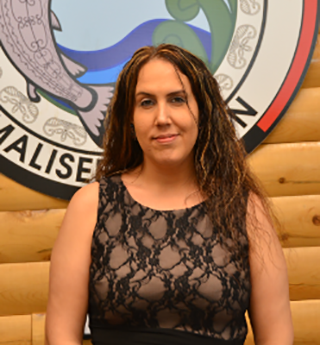
Jasmine Pirie
Finance, Band Businesses, Bereavement and Licensing; Education, Language & Post Secondary; Commercial Fisheries, AFS, FSC, Watershed; NB Power
Email: jasmine.pirie@neqotkuk.ca
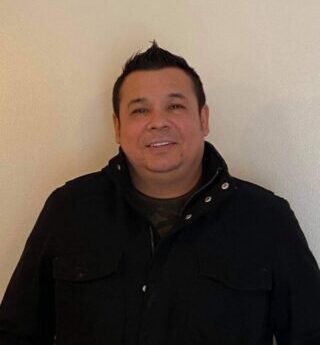
Adam Saulis
Youth Center, Recreation, Summer Games & Youth Park Project; Health Services, Addictions, Autism & Disabilities; Social Services, Headstart, Child & Family Services; Emergency Services, Security & Community Safety
Email: adam.saulis@neqotkuk.ca
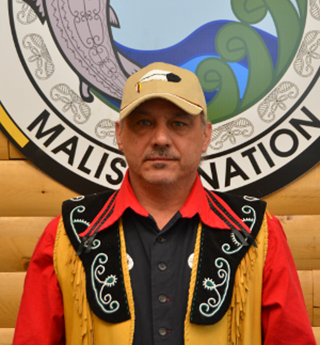
Edwin Bernard
Finance, Band Businesses, Bereavement and Licensing; Commercial Fisheries, AFS, FSC, Watershed; Commercial Forestry, Land Management & Jamer’s Mill; Capital, O & M, Infrastructure & Housing
Email: edwinbernard61@icloud.com
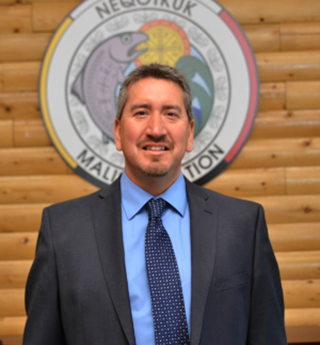
Brad Sappier
Commercial Fisheries, AFS, FSC, Watershed; Capital, O & M, Infrastructure & Housing; Economic Development, Additions to Reserve & Tourism; Food Security
Email: brad.sappier@neqotkuk.ca
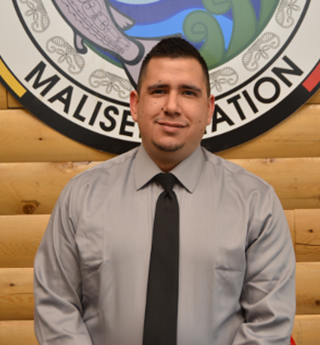
Julian Moulton
Education, Language & Post Secondary; NB Power; Labour Day, Pow-wow, Events & Cultural initiatives; Emergency Services, Security & Community Safety
Email: julian.moulton@neqotkuk.ca
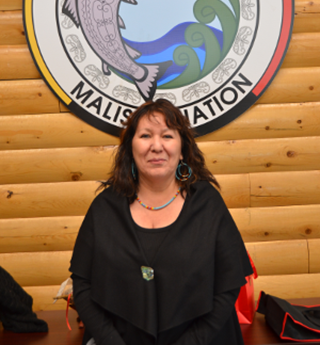
Tina Martin
Social Services, Headstart, Child & Family Services; Labour Day, Pow-wow, Events & Cultural initiatives; Emergency Services, Security & Community Safety; Elders Affairs & Elders Care Centre
Email: tmartin@nb.aibn.com
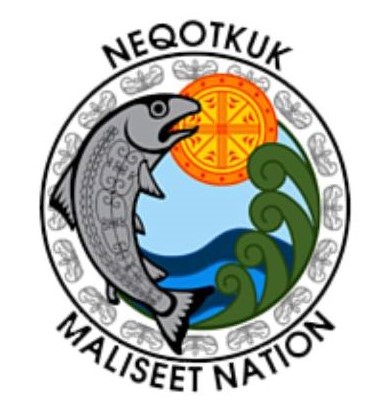
Aaron Nicholas
Commercial Forestry, Land Management & Jamer’s Mill; Health Services, Addictions, Autism & Disabilities; Social Services, Headstart, Child & Family Services; Economic Development, Additions to Reserve & Tourism
Email: aaron.nicholas@neqotkuk.ca
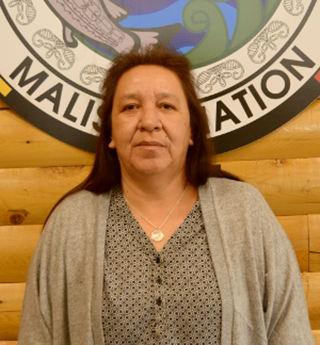
Kim Perley
Finance, Band Businesses, Bereavement and Licensing; Health Services, Addictions, Autism & Disabilities; Elders Affairs & Elders Care Centre; Employment & Training, Daycare
Email: tcfs01@hotmail.com

Donald Hafke
Capital, O & M, Infrastructure & Housing; Emergency Services, Security & Community Safety; Employment & Training, Daycare; Food Security
Email: donald.hafke@neqotkuk.ca
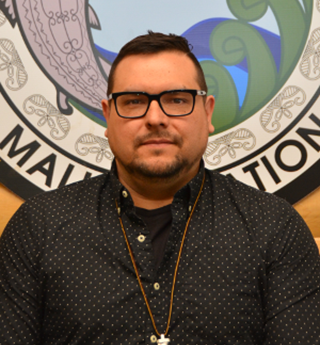
Shane Perley-Dutcher
Youth Center, Recreation, Summer Games & Youth Park Project; NB Power; Labour Day, Pow-wow, Events & Cultural initiatives; Economic Development, Additions to Reserve & Tourism
Email: shane.perleydutcher@neqotkuk.ca

Tim Nicholas-McDougall
Education, Language & Post Secondary; Commercial Forestry, Land Management & Jamer’s Mill; Economic Development, Additions to Reserve & Tourism; Food Security
Email: timothy.nicholasmcdougall@neqotkuk.ca
https://tobiquefirstnation.ca/forestry/
Tobique Forestry
Tobique Forestry operations consists of a community fuel wood processing, and distribution program partnered with the Social department, at no cost to the members.
Forestry also assists member owned forestry operations,
Such as cable skidders.
We coordinate an annual softwood allocation of 33000 cubic
meters, and 8900 cubic meters of hardwood.
We also contract with NB Power clearing
transmission lines.
Forestry employs approximately 20 seasonal, and 2 full time annually.
Contacts
13141 Route 105, Tobique First Nation, NB E7H 2Y8
Fred Bear
Director of Forestry/ Mill Manager
Phone: (506) 273 – 2883
Email: fbear330@gmail.com
Mike Bear
Operations Manager
Phone: (506) 280 – 0469
Email: mike.bear@neqotkuk.ca
https://madawaskamaliseetfirstnation.com/en/about-us/organization
Organization
Meet the team
Our dedicated staff works tirelessly to meet our members' needs and provide quality service to stakeholders, outside organizations, and visitors.
We believe strongly in teamwork and make it a priority to support each other so that we can better support the community through our work.
Patricia Bernard
Biographical Notes
Patricia Bernard is a Wolastoqey woman, grandmother, lawyer and Chief of the Madawaska Maliseet First Nation in northern New Brunswick. Her commitment to resolving a 250 year old specific land claim dispute, for the benefit of her community, has been ongoing for the past 23 years. But this major file is only one of many of her accomplishments throughout her career.
Prior to becoming Chief in 2013, Patricia was a councillor for the community since 2007. Patricia worked for the federal government in the Specific Claims Branch in Ottawa and in Governance and Registration in Amherst with Indigenous and Northern Affairs Canada from 2000 to 2006. Patricia has a degree in education and law and was called to the New Brunswick Bar in 2000. In fact, she was the first Wolastoqey woman to graduate with a law degree. All her time in university was focused on Aboriginal history and law, and it has definitely paid off.
Aside from her focus on the land claim, Patricia, while a councillor and legal and governance advisor to her community, focused much of her time on developing and implementing policies, by-laws and protocols that work towards transparency, accountability, fairness and overall good governance. As Chief, she was instrumental in bringing unity to the Wolastoqey Nation in New Brunswick. Patricia, in her first year as Chief, held the first meeting in her community towards uniting the Wolastoqey communities, and was the leading promoter until a unified organization was structured.
Patricia continues to be instrumental in
advocating for the advancement of the Wolastoqey and Indigenous people
of New Brunswick generally, in having Aboriginal and Treaty rights
recognized and implemented within this province, and in advancing the
very important work of reconciliation. She serves as a role model for all young New Brunswickers, both Aboriginal and non-Aboriginal alike.
Her home community of Madawaska is the model for any Canadian community. Madawaska First Nation is major economic driver in the region and contributes revenues for not only her community, but also for the local municipal government (City of Edmundston) and for the Provincial government as well. Grey Rock Power Centre is an economic success with a strong foundation that has progressed under her leadership. The Grey Rock Power Center employs over 300 people from the surrounding region. Her exemplary leadership was recently recognized when her community was awarded the 2018 Indigenous Economic Developer of the Year Award by Cando (a national Indigenous organization involved in community economic development.) In 2019, Chief Bernard was appointed to the Order of New Brunswick, one of the highest honours for any civilian in the province.
Under Chief Bernard’s leadership, Madawaska recently voted, in a referendum community vote, to leave the Indian Act in regards to the management of lands. Her community also left the Indian Act with respect to Elections and Membership. Self-determination and self-government are continuous goals for Chief Bernard, so she is not stopping anytime soon.
Donna Wallace-Bourgeault
Biographical Notes
Donna
Wallace-Bourgeault is a Wolastoqey woman of the Madawaska Maliseet
First Nation where she was born and raised. Donna graduated from the
Cité des Jeunes AM Sormany in 1989. After pursuing her studies in
Business Administration for one year, at the University of Moncton, she
decided to continue her studies in health. She graduated as a Medical
Secretary at the New Brunswick Community College in 1993. For over than
ten years, Donna worked in the Edmundston area in diverse fields where
she acquired her experience. She worked at Irving Oil, Edmundston
Hospital (Vitalité) and the Caisses Populaires Acadiennes (UNI). In
2006, she was hired by the Madawaska Maliseet First Nation Health Center
where she worked as a Medical Secretary. In 2008, she accepted the
position of Band Administrator for the Madawaska Maliseet First Nation,
where she still works to this day. In 2013, Donna was elected as a Band
Councillor and re-elected for a second mandate in 2015. Donna is
currently on her third mandate following an Election in August of 2019.
Since first elected it has been Donna’s vision to see Madawaska become a
self-sufficient First Nation. Donna will continue to thrive for
Economic Development which to her is not only the success of Madawaska
but also employment opportunities. She will focus on policies and will
work hard to improve existing programs such as Education, Housing and
Health all while ensuring the well being of Elders.
Diane Pelletier
Biographical Notes
Councillor Diane Pelletier is not just a leader on the Madawaska Maliseet First Nation.
She is married to the love of her life, Guilmond Thibault, and is the mother of two beautiful children, Billy and Jamie. Diane is a descendant of the Francis family and is the ninth child in a family of thirteen. She’s been living on reserve for the last 25 years and has been a councillor for 13 years and was just re-elected for another four years. Diane worked for the band in many capacities. She held a position of Tourism Facilitator for three years and was the Cultural Event Planner for two years. She went back to school and holds a certificate in Business Management. Her last job before her election as councillor was NNADAP Worker. She was also in charge of the Tobacco Strategy with Health Canada when the program ended, she put in place a wonderful project that she called “Helping our children being healthy”. Her vision was to have a gym for the benefit of the whole community and with the increase of $1.00 per pack of native cigarettes sold she was able to fulfill that dream. During that time, she also took a six-week course entitle the Aboriginal Diabetes Initiative from which she graduated with honors. The band now receives funding every year because of Diane’s initiative and successful accomplishments in that program. Looking forward Diane hopes to continue the successes of MMFN by making them a leader in environmentally friendly and clean energy projects.
Contact list
Chief and Council
Health
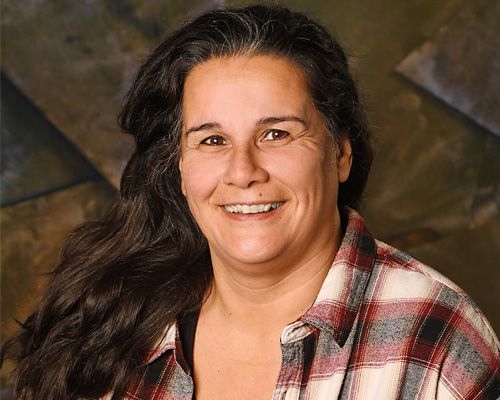
Rhonda Bélanger
Gym Attendant
(506) 735-0025
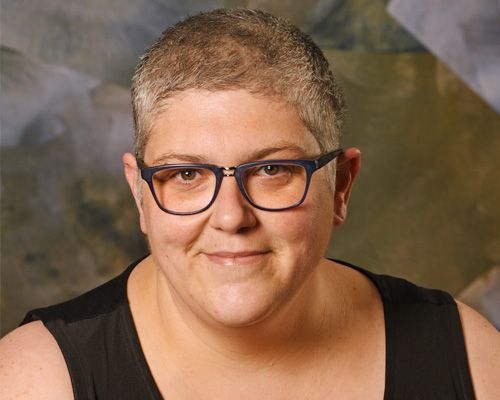
Laurie Wallace
Gym Attendant
(506) 735-0025
Housing, Infrastructure & Maintenance

Louise Cimon
Bus Driver
(506) 739-9765

Diane Richard
Security Guard
(506) 739-9765

Rhéa Gagnon
Security Guard
(506) 739-9765

Guy Bernard
Security Guard
(506) 739-9765
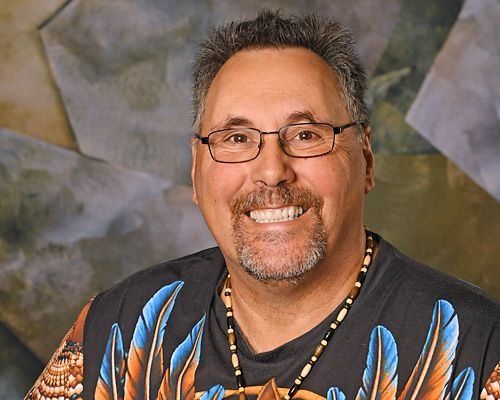
Philippe Francis
SECURITY GUARD
(506) 739-9765

Rodney Lizotte
Maintenance Coordinator
(506) 739-9765

Mike Wallace
Janitor
(506) 739-9765
Training, Education and Social
Lands
Finance

David Couturier
Smoke Signal Manager
(506) 739-9765
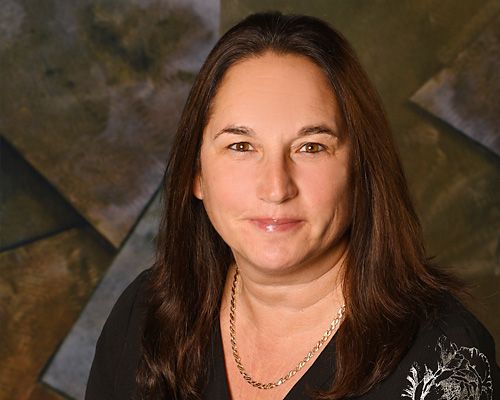
Sharon Wallace
St. John Valley Gas Bar Manager
(506) 739-9765
General Administration



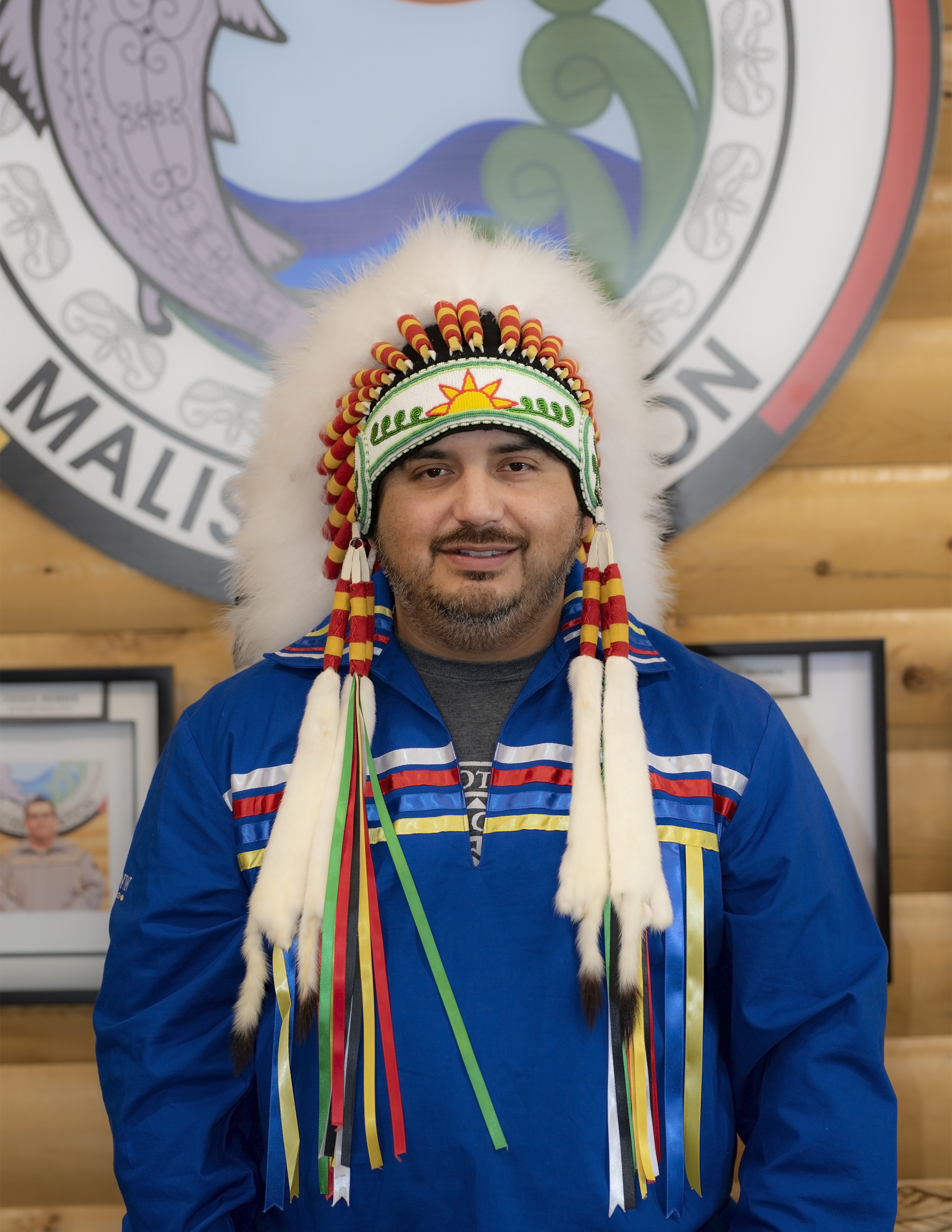
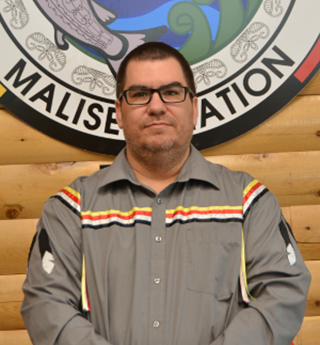
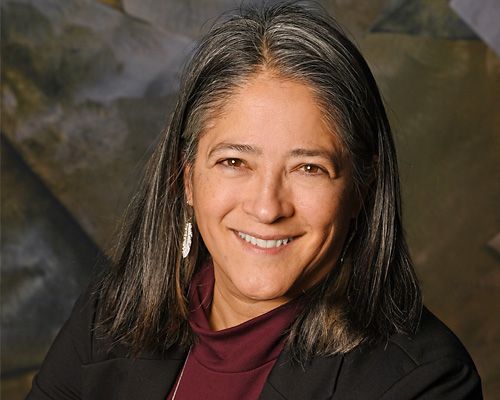
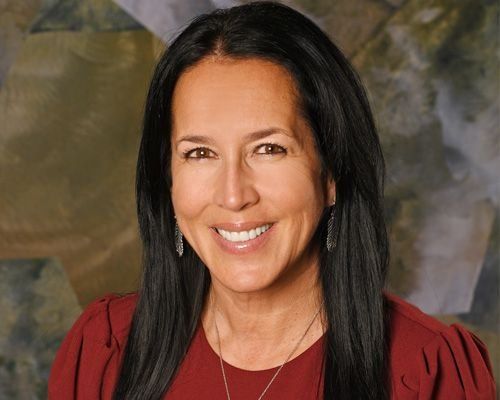
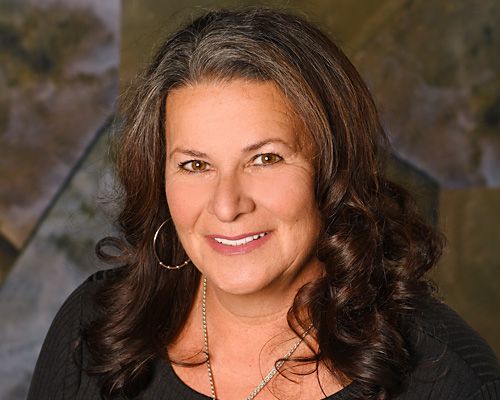
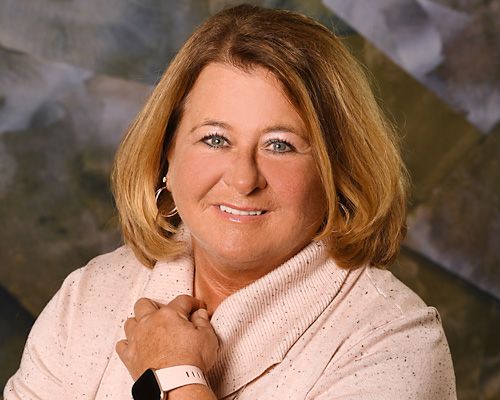
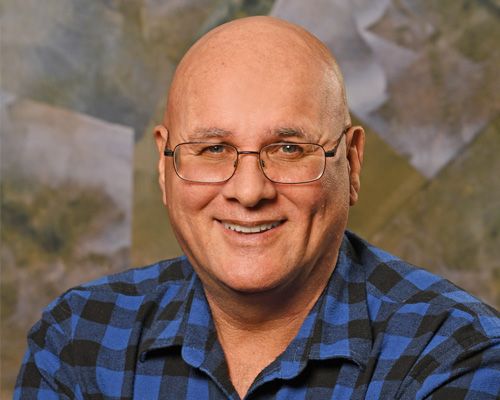

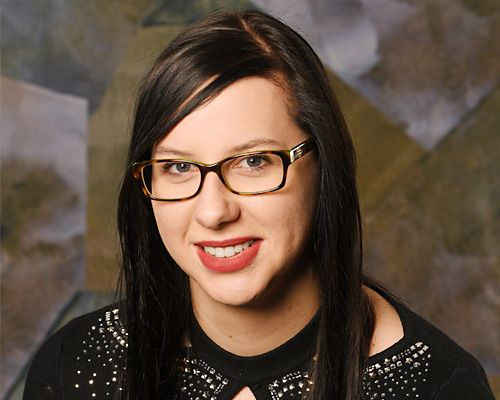
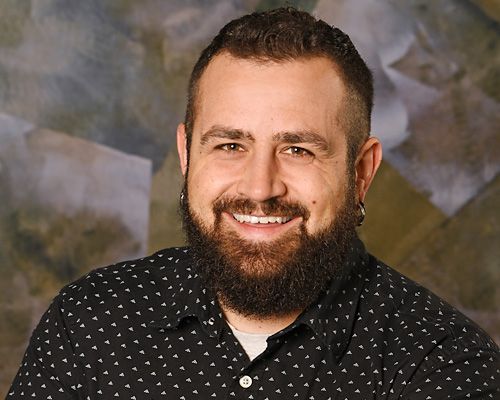
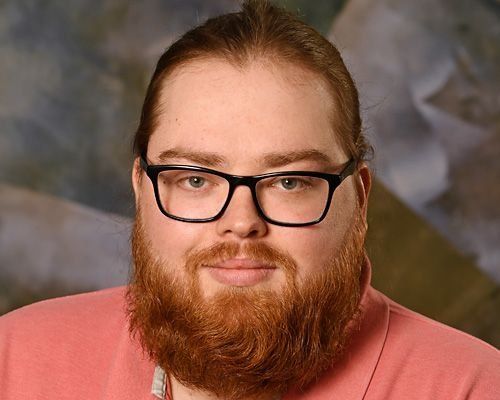



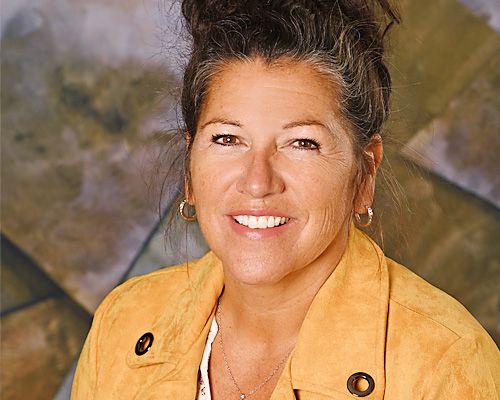
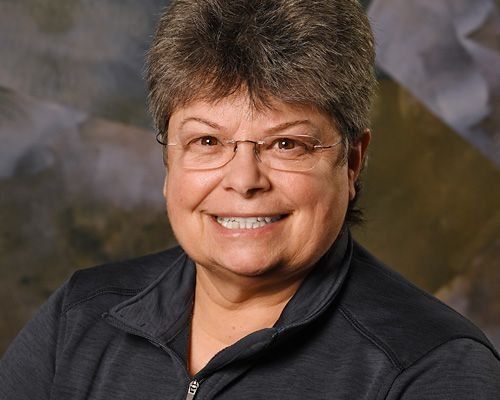
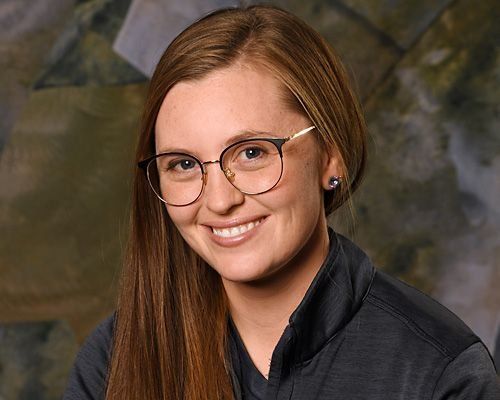


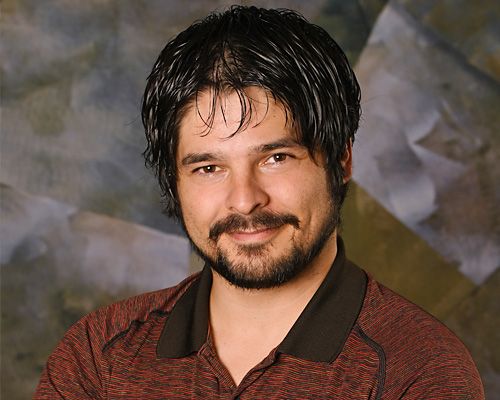
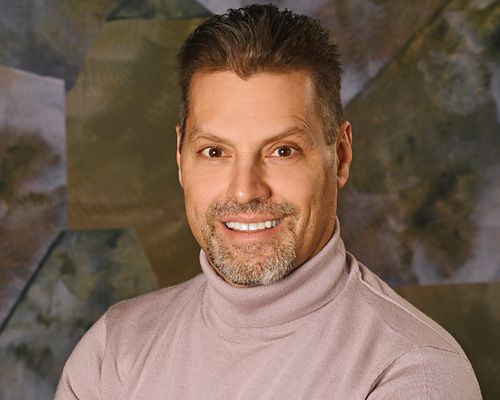
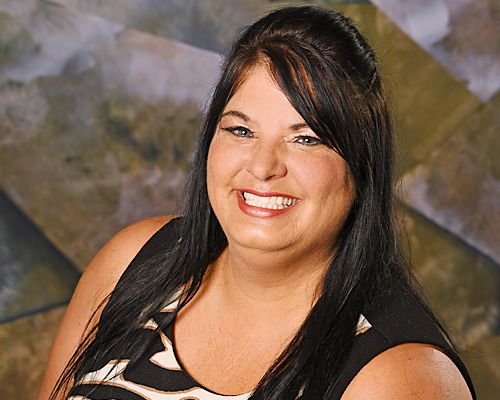

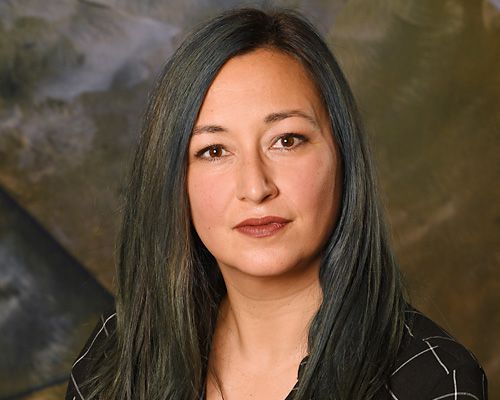
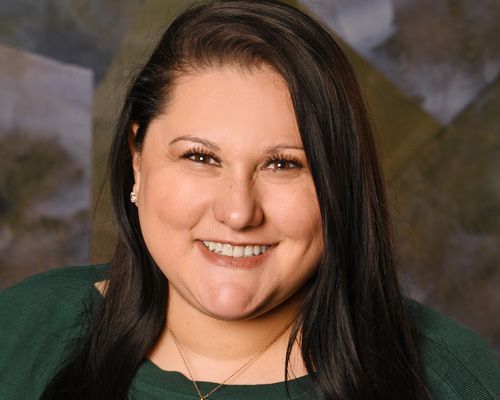
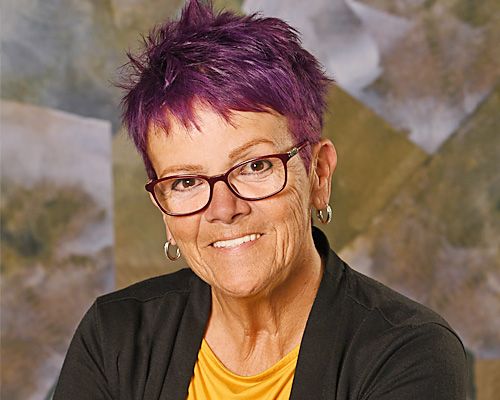
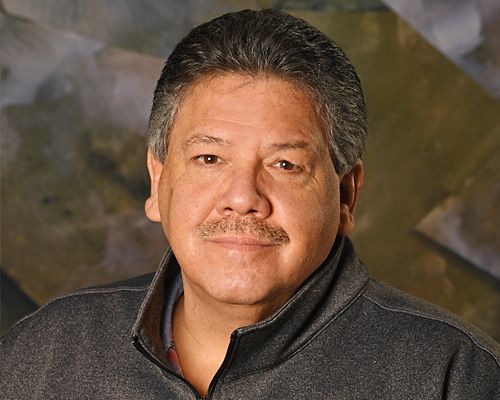
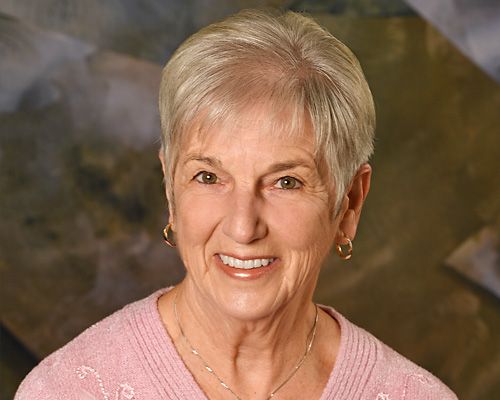
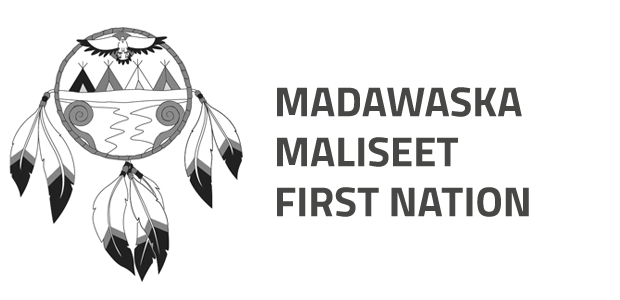
No comments:
Post a Comment